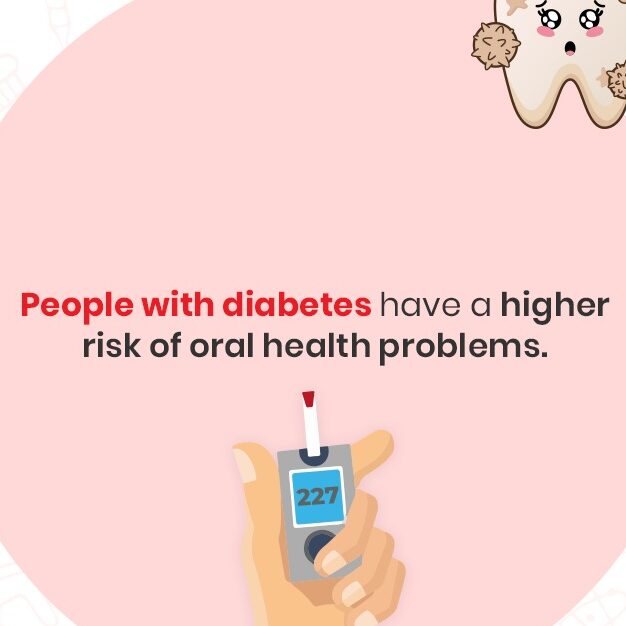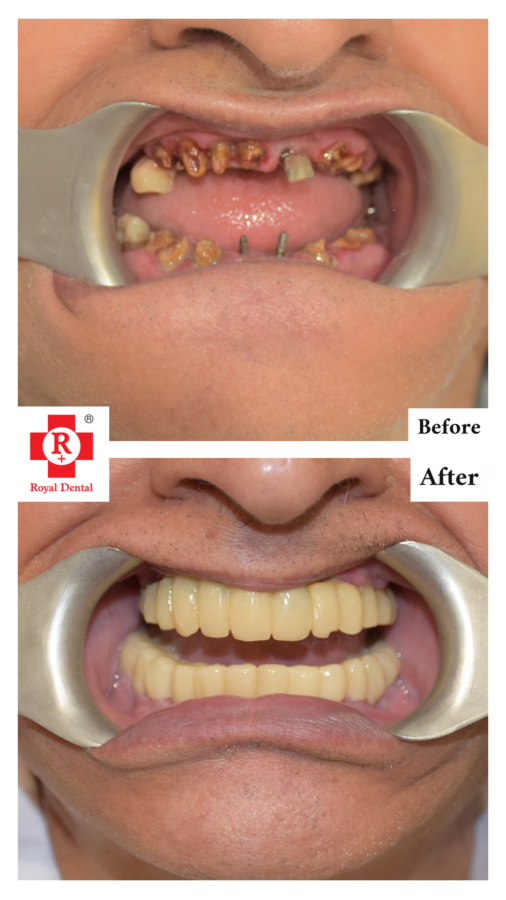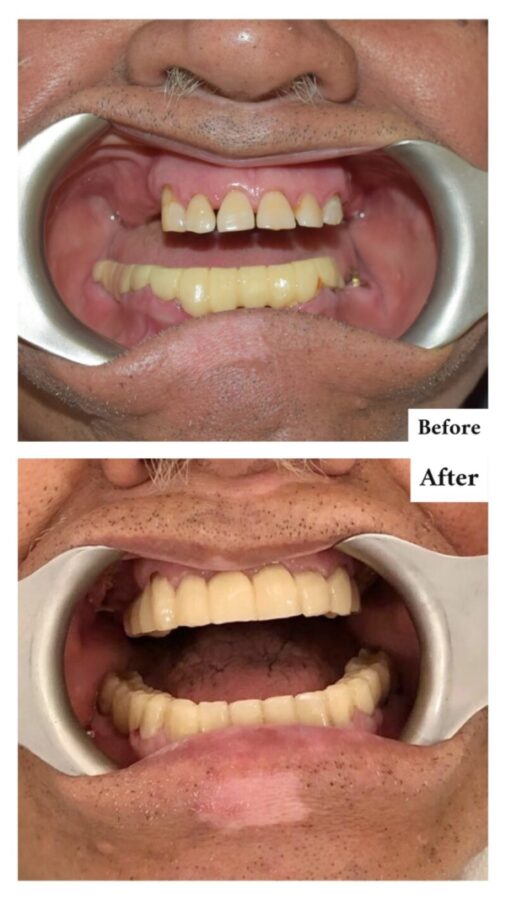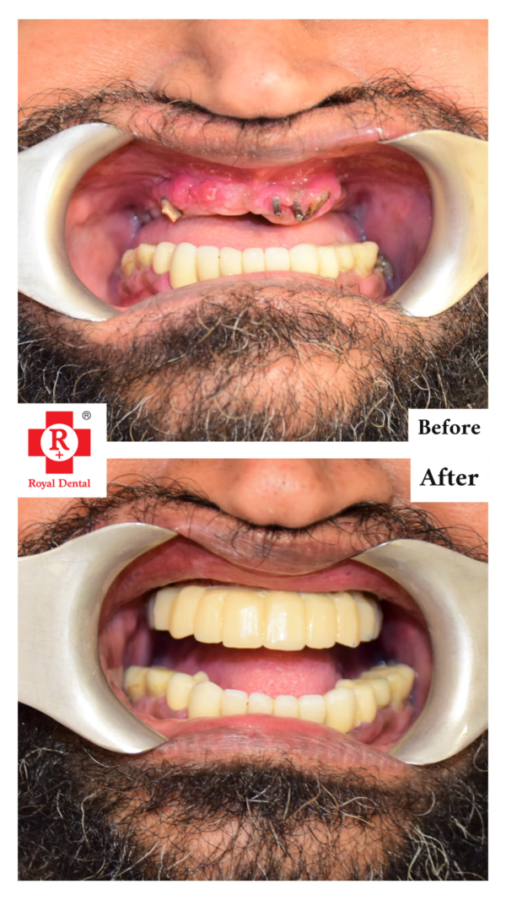Are you living with diabetes and considering dental implants? While diabetes can complicate oral health, it doesn’t have to hinder your ability to get dental implants. With proper care and attention, those with diabetes can successfully navigate the dental implant process and achieve optimal oral health. In this article, we’ll share some tips and insights on how you can ensure the success of your dental implant procedure while living with diabetes. From maintaining good blood sugar levels to practicing excellent oral hygiene. We’ll cover everything you need to know to keep your smile healthy and vibrant. So, whether you’re considering dental implants or simply looking to improve your overall oral health. Read on for some essential tips on navigating dental implants with diabetes.
Understanding the Impact of Diabetes on Oral Health
Before diving into the specifics of dental implant surgery with diabetes. It’s important to understand how diabetes can affect your oral health. Unfortunately, diabetes can increase the risk of developing certain oral health problems such as gum disease, tooth decay, and oral infections. This is because high blood sugar levels can weaken the body’s immune system, making it harder to fight off bacteria and infections in the mouth.
Gum disease, in particular, is a common problem among those with diabetes. This occurs when the bacteria in the mouth cause inflammation and infection in the gums. Over time, this can lead to the destruction of the gum tissue and bone that support the teeth, causing tooth loss. In fact, those with diabetes are two to three times more likely to develop gum disease than those without diabetes.
Another issue that diabetics may face is dry mouth. This occurs when the mouth doesn’t produce enough saliva, which can increase the risk of tooth decay and oral infections. Additionally, those with poorly controlled diabetes may experience delayed healing after oral surgery or other dental procedures.
Risks and Benefits of Dental Implants for Diabetics
Dental implants are an excellent solution for people who have lost one or more teeth. However, for people with diabetes, there are some potential risks and benefits to consider before deciding whether to get dental implants.
Benefits of Dental Implants for Diabetics:
Improved oral health: Dental implants can help prevent further damage to your teeth and gums, which is especially important for people with diabetes, who may be more prone to infections and other dental problems.
Better swallowing and pronouncing: Dental implants can restore the natural function of your teeth, which can help you speak more clearly and eat more comfortably.
Improved self-esteem: Dental implants can help improve your appearance and boost your confidence, which can be especially important for people with diabetes, who may be dealing with other health issues.

Risks of Dental Implants for Diabetics:
Higher risk of infection: People with diabetes may be more prone to infections. Including those that can develop around dental implants. It’s essential to maintain good oral hygiene and keep the implant site clean to prevent infections.
Delayed healing: Diabetes can slow down the healing process, which can lead to complications after dental implant surgery. It’s crucial to work closely with your dentist and follow their instructions for post-operative care to promote healing and reduce the risk of complications.
Higher risk of implant failure: Diabetes can also increase the risk of implant failure. However, with careful planning and management, the success rate for dental implants in people with diabetes is still high.
Preparing for Dental Implant Surgery with Diabetes
Manage your blood sugar levels: It’s crucial to keep your blood sugar levels under control before, during, and after dental implant surgery. Uncontrolled diabetes can increase the risk of complications, such as infection, delayed healing, and implant failure. Work closely with your healthcare team to manage your diabetes and monitor your blood sugar levels leading up to the procedure.
Inform your dentist of your medical history: Let your dentist know about your diabetes and any medications you’re taking, including insulin or other diabetes medications. This information can help your dentist plan your treatment and reduce the risk of complications.



Schedule your surgery at the right time: Dental implant surgery is a major procedure that can require some time for recovery. If you have diabetes, it’s important to schedule your surgery at a time when your blood sugar levels are stable and you’re in good overall health.
Follow pre-operative instructions: Your dentist will likely provide you with specific instructions to follow before your surgery. This may include avoiding food and drink for a certain amount of time before the procedure or adjusting your diabetes medications. It’s important to follow these instructions carefully to reduce the risk of complications.
Plan for post-operative care: After dental implant surgery. You’ll need to take some time to recover and allow your mouth to heal. This may include changes to your diet, medication management, and oral hygiene practices. Work closely with your dentist and healthcare team to develop a plan for post-operative care that takes into account your diabetes management.
Managing Blood Sugar Levels Before and After Surgery
One of the most important factors in ensuring the success of dental implant surgery with diabetes is keeping your blood sugar levels within a healthy range before and after the surgery. This can help minimize the risk of infection, promote healing, and reduce the risk of implant failure.
Before the surgery, it’s important to work with your healthcare team to ensure your blood sugar levels are within a healthy range. This may involve adjusting your medication or insulin regimen and monitoring your blood sugar levels closely in the days leading up to the surgery.
After the surgery, it’s important to continue monitoring your blood sugar levels closely and following your healthcare team’s recommendations for managing your diabetes. Additionally. You may need to adjust your diet and medication regimen to ensure your blood sugar levels stay within a healthy range during the healing process.
Post-Operative Care for Diabetics with Dental Implants
Monitor your blood sugar levels: It’s important to monitor your blood sugar levels regularly after surgery. Fluctuations in blood sugar levels can affect healing and increase the risk of complications. Keep track of your levels and adjust your insulin or other medications as needed in consultation with your healthcare team.
Follow a soft food diet: For the first few days after surgery. You’ll need to follow a soft food diet to avoid irritating the implant site. Soft foods like soups, mashed potatoes, and smoothies are good choices. Avoid hard, crunchy, or spicy foods that can cause discomfort or irritate the implant site.
Avoid smoking and alcohol: Smoking and alcohol can delay healing and increase the risk of complications. It’s best to avoid smoking and alcohol for several days after surgery.
Practice good oral hygiene: Proper oral hygiene is crucial after dental implant surgery. Brush your teeth gently twice a day with a soft-bristled toothbrush and rinse your mouth with a saltwater solution to help reduce swelling and promote healing.
After dental implant surgery, proper post-operative care is essential, especially for people with diabetes.
Attend follow-up appointments: Regular follow-up appointments with your dentist are essential to monitor healing and ensure that the implant is properly integrating with your jawbone. Attend all scheduled appointments and let your dentist know if you experience any unusual symptoms or complications.
Inform healthcare providers: If you experience any signs of infection or have other concerns. It’s important to inform your healthcare providers. People with diabetes are at higher risk of infections. So it’s crucial to be vigilant and seek medical attention promptly if necessary.
Oral Hygiene Tips for Diabetics with Dental Implants
Maintaining good oral hygiene is essential for diabetics with dental implants. This can help minimize the risk of infection and ensure your implants last for many years to come. Some important oral hygiene tips for diabetics with dental implants include:

Brushing your teeth twice a day with a soft-bristled toothbrush and fluoride toothpaste.
Flossing at least once a day to remove plaque and bacteria from between your teeth and around your implants.


Using an antibacterial mouthwash to kill germs and freshen your breath.
Avoiding tobacco products, which can increase the risk of gum disease and oral infections.


Visiting your dentist regularly for check-ups and cleanings.
Dental Check-Ups for Diabetics with Dental Implants
Regular dental check-ups are essential for diabetics with dental implants. This can help ensure the implants are functioning properly and detect any potential problems before they become more serious. Your dentist may recommend that you schedule check-ups every 3-6 months to monitor the health of your implants and ensure your oral health is on track.
During these check-ups, your dentist may take x-rays to ensure your implants are properly fused to the bone and check for any signs of infection or other complications. Additionally, your dentist may perform a thorough cleaning to remove plaque and bacteria from around your implants and ensure your oral hygiene regimen is on track.
Frequently Asked Questions: Dental Implant and Diabetes
Q: Can diabetics get dental implants?
A: Yes, diabetics can get dental implants. However, it’s important to work closely with your healthcare team and dentist to ensure your diabetes is well-controlled before and after the surgery.
Q: Are there any risks associated with dental implants for diabetics?
A: Yes, diabetics may be at a higher risk of developing infections after dental implant surgery. Additionally, poorly controlled diabetes can increase the risk of implant failure or delayed healing after surgery.
Q: How can I ensure the success of my dental implant surgery with diabetes?
A: To ensure the success of your dental implant surgery with diabetes. It’s important to work closely with your healthcare team and dentist to ensure your diabetes is well-controlled before and after the surgery. Additionally, it’s important to follow a special diet and oral hygiene regimen to promote healing and minimize the risk of infection.
Conclusion
While diabetes can complicate oral health, it doesn’t have to hinder your ability to get dental implants. With proper care and attention, those with diabetes can successfully navigate the dental implant process and achieve optimal oral health. By maintaining good blood sugar levels, practicing excellent oral hygiene. And attending regular dental check-ups. You can keep your smile healthy and vibrant for many years to come. If you’re considering dental implants and have diabetes, be sure to work closely with your healthcare team and dentist to ensure the success of your surgery.






